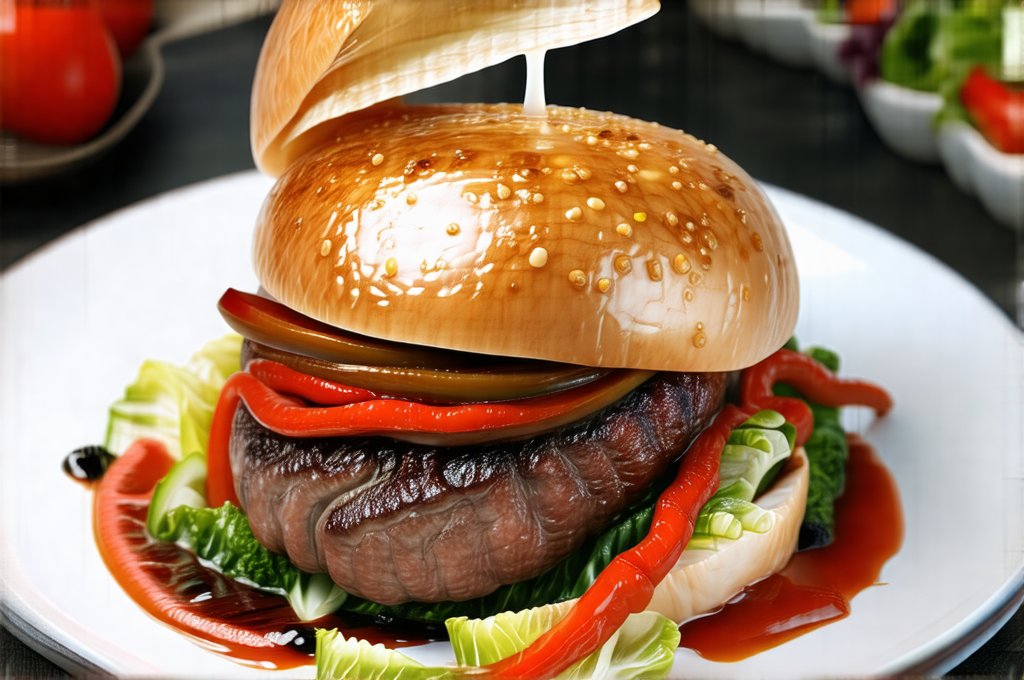The feeling is almost universal: you’ve enjoyed a particularly satisfying – perhaps large – meal, and now instead of comfortable fullness, you’re met with a wave of general malaise. It isn’t quite sickness, not necessarily involving vomiting or diarrhea, but a pervasive sense of sluggishness, discomfort, and often, digestive upset. This experience extends beyond simply feeling “full”; it’s a distinct state that many attribute to the meal itself, and frequently involves symptoms linked to gastroesophageal reflux disease (GERD) even in individuals without a formal diagnosis. Understanding why this happens requires delving into the complex interplay between our digestive system, eating habits, and how our bodies react to processing larger quantities of food. It’s important to note that occasional post-meal discomfort is normal, but frequent or severe experiences warrant attention and potential consultation with a healthcare professional. You might even find relief in how to recover after a digestive flare up.
This isn’t merely about overeating; it’s about how we eat, what we eat, and individual physiological responses. A heavy meal can place significant demands on the digestive system, increasing stomach pressure and potentially triggering acid reflux. The body redirects blood flow to aid digestion, which can leave you feeling tired or lethargic. Moreover, certain food combinations – high-fat foods alongside acidic ones, for instance – are more likely to exacerbate these effects. The sensation of malaise is often multifaceted, encompassing physical symptoms like bloating and heartburn, but also extending to mental fatigue and a general lack of energy. It’s a systemic response, not just a localized digestive one. If you frequently struggle with this, exploring how to stop feeling bloated after every meal could be beneficial.
GERD & Reflux Triggered by Heavy Meals
Gastroesophageal reflux disease (GERD) is characterized by the frequent backflow of stomach acid into the esophagus, causing heartburn, regurgitation, and other uncomfortable symptoms. While chronic GERD requires medical management, even those without a formal diagnosis can experience reflux-like symptoms after consuming large meals. A heavy meal directly contributes to this phenomenon in several ways. Firstly, increased food volume stretches the stomach, elevating intragastric pressure. This elevated pressure makes it easier for stomach acid to flow back up into the esophagus, particularly if the lower esophageal sphincter (LES) – the muscular valve separating the esophagus from the stomach – is weak or relaxes inappropriately. Secondly, certain foods commonly found in larger meals – fatty foods, chocolate, caffeine, alcohol, mint – are known to relax the LES, further promoting reflux. Thirdly, a distended stomach can physically impede the normal function of the LES, making it less effective at preventing acid backflow.
The connection isn’t always immediate; symptoms might not appear until several hours after eating. This is because the digestive process takes time, and peak acidity often occurs a while after the meal has been consumed. Furthermore, lying down soon after eating – even for a short rest – significantly increases the risk of reflux as gravity no longer assists in keeping stomach contents where they belong. It’s crucial to differentiate between occasional heartburn after a large meal and chronic GERD. Occasional symptoms are usually manageable with over-the-counter remedies or lifestyle adjustments, but persistent or severe symptoms require medical evaluation to rule out more serious complications like esophagitis or Barrett’s esophagus. You may also find it helpful to calm your stomach after a cheat day with specific strategies.
Finally, the type of fat matters. Saturated and trans fats take longer to digest, increasing gastric emptying time and prolonging the period where acid production is elevated. This can exacerbate reflux symptoms and contribute to a prolonged feeling of discomfort. Understanding these mechanisms helps explain why heavy meals are such common triggers for GERD-like experiences.
The Systemic Impact of Digestion & Malaise
Beyond GERD, the process of digesting a large meal itself places significant stress on the body’s resources, leading to systemic effects that contribute to feelings of malaise. Digestion is an energy-intensive process. A substantial portion of blood flow is redirected from other areas of the body – including the brain and muscles – to the digestive system to facilitate absorption and processing. This temporary shift in blood distribution can result in fatigue, lethargy, and difficulty concentrating. You might feel mentally foggy or sluggish after a big meal for this very reason. The parasympathetic nervous system, responsible for “rest and digest” functions, becomes highly active during digestion, further contributing to the feeling of slowed-down energy levels.
The body also prioritizes nutrient absorption from the food being digested. This involves numerous hormonal signals and metabolic processes that require substantial energy expenditure. Moreover, a heavy meal can disrupt blood sugar levels. While carbohydrates provide quick energy, large amounts can lead to a rapid spike followed by a crash, contributing to feelings of fatigue and irritability. The insulin response required to manage this glucose surge also taxes the body’s resources. It’s not just about the quantity of food; it’s also about the complexity of its digestion. Foods requiring extensive breakdown – high-fat meals or those containing difficult-to-digest proteins – place a greater burden on the system. If you are looking to change your eating habits, consider building a gut recovery meal plan.
Dietary Strategies for Mitigation
One of the most effective ways to minimize post-meal malaise is through proactive dietary adjustments. These don’t necessarily mean depriving yourself, but rather making informed choices about what and how you eat. Here are some key strategies:
- Portion Control: This is arguably the most important step. Reducing portion sizes reduces the strain on your digestive system and minimizes acid reflux triggers. Aim for smaller, more frequent meals throughout the day instead of three large ones.
- Food Choices: Favor easily digestible foods – lean proteins, complex carbohydrates (whole grains, vegetables), and healthy fats in moderation. Limit or avoid trigger foods known to exacerbate GERD symptoms, such as fatty foods, chocolate, caffeine, alcohol, citrus fruits, and spicy dishes.
- Mindful Eating: Pay attention to your hunger and fullness cues. Eat slowly and chew thoroughly – this aids digestion and reduces the amount of air swallowed, which can contribute to bloating. Avoid eating immediately before lying down. You could also explore creating a low FODMAP meal plan for further dietary support.
Lifestyle Factors & Post-Meal Habits
Beyond diet, several lifestyle factors play a crucial role in managing post-meal discomfort. Regular exercise improves digestive function and overall health, while maintaining a healthy weight reduces pressure on the stomach. Managing stress is also important, as stress can exacerbate GERD symptoms. Consider incorporating relaxation techniques like deep breathing exercises or meditation into your routine. Here’s how to adjust some habits:
- Timing: Allow at least 2-3 hours between your last meal and bedtime. This gives your stomach time to empty before you lie down.
- Posture: Avoid lying flat immediately after eating. If possible, sit upright or take a short walk to aid digestion. Elevating the head of your bed can also help prevent nighttime reflux.
- Hydration: Drink plenty of water throughout the day, but avoid drinking large amounts with meals as this can dilute stomach acid and potentially worsen digestion in some individuals.
When to Seek Medical Attention
While occasional post-meal malaise is usually harmless, certain symptoms warrant medical evaluation. Persistent or severe heartburn, regurgitation, difficulty swallowing (dysphagia), chest pain, unexplained weight loss, or vomiting should prompt a visit to your doctor. These could be signs of more serious underlying conditions like esophagitis, Barrett’s esophagus, or even esophageal cancer. Self-treating chronic GERD symptoms without medical supervision is not recommended. A healthcare professional can accurately diagnose the cause of your discomfort and recommend appropriate treatment options, which may include lifestyle modifications, medications (antacids, H2 blockers, proton pump inhibitors), or in some cases, surgery. Remember that early detection and management are key to preventing complications and improving long-term health. Perhaps start with how to build a minimal ingredient meal plan for simplicity.


















